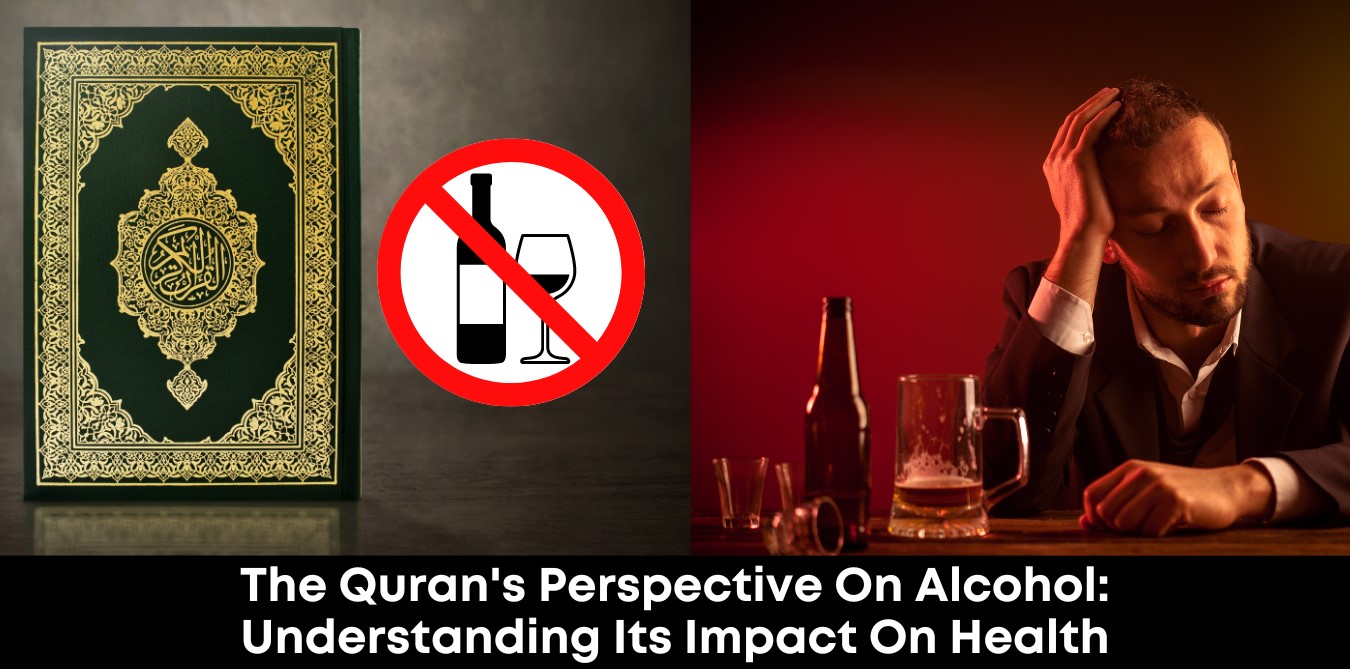
The Quran’s Perspective on Alcohol: Understanding Its Impact on Health
Exploring the Quranic View on Alcohol Consumption and Its Health Ramifications
Alcohol consumption has been a topic of debate and discussion for centuries, with various religious texts offering insights into its effects on individuals and society. In the Quran, Islam’s holy book, alcohol is explicitly prohibited, with clear reasons outlined for its detrimental impact on both spiritual and physical well-being. Here’s what the Quran says about alcohol and why it’s considered harmful for the body:
1. Prohibition of Intoxicants
The Quran categorically prohibits the consumption of intoxicants, including alcohol, as stated in Surah Al-Baqarah (2:219): “They ask you about wine and gambling. Say, ‘In them is great sin and [yet, some] benefit for people. But their sin is greater than their benefit.'” This verse emphasizes the negative consequences of alcohol consumption, highlighting its potential for harm outweighing any perceived benefits.
2. Impairment of Judgment and Reasoning
Alcohol is known to impair judgment, reasoning, and cognitive function, leading individuals to engage in risky behaviours and decisions. The Quran warns against anything that clouds the mind and interferes with one’s ability to think clearly and make sound choices. Surah An-Nisa (4:43) states: “O you who have believed, do not approach prayer while you are intoxicated until you know what you are saying…” This verse underscores the importance of maintaining mental clarity and awareness, especially during acts of worship.
3. Harm to the Body and Soul
Alcohol consumption is associated with a myriad of health risks, including liver disease, cardiovascular problems, and mental health disorders. The Quran emphasizes the sanctity of the body and soul, urging believers to protect themselves from harm and maintain their well-being. Surah Al-Maidah (5:90) admonishes against intoxicants and gambling, stating: “O you who have believed, indeed, intoxicants, gambling, [sacrificing on] stone altars [to other than Allah], and divining arrows are but defilement from the work of Satan, so avoid it that you may be successful.”
4. Societal Impact and Moral Decay
Alcohol consumption not only harms individuals but also contributes to societal issues such as violence, addiction, and family breakdowns. The Quran warns against the destructive consequences of intoxicants on communities and the erosion of moral values. Surah Al-Maidah (5:91) continues: “Satan only wants to cause between you animosity and hatred through intoxicants and gambling and to avert you from the remembrance of Allah and from prayer. So will you not desist?” This verse underscores the role of alcohol in fostering discord and distancing individuals from their spiritual obligations.
5. Guidance for Personal Wellness
In addition to prohibiting alcohol consumption, the Quran provides guidance for personal wellness and self-care. Surah An-Nahl (16:68-69) encourages believers to reflect on the blessings of Allah and make conscious choices that promote health and well-being: “And your Lord inspired to the bee, ‘Take for yourself among the mountains, houses, and among the trees and [in] that which they construct. Then eat from all the fruits and follow the ways of your Lord laid down [for you].’ There emerges from their bellies a drink, varying in colours, in which there is healing for people. Indeed, in that is a sign for a people who give thought.”
Reflecting on Quranic Teachings for Holistic Health
The Quran’s teachings on alcohol serve as a reminder of the importance of preserving one’s physical, mental, and spiritual well-being. By abstaining from intoxicants and adhering to a lifestyle guided by Islamic principles of moderation, balance, and mindfulness, believers can cultivate holistic health and lead fulfilling lives in accordance with divine guidance.

